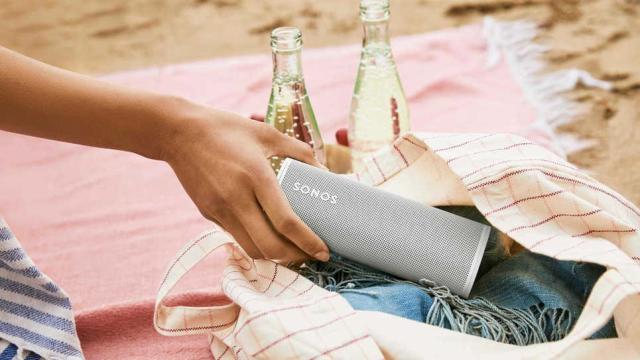Apple has Siri, Amazon has Alexa, and Google has its Assistant. Even Samsung has Bixby, which for whatever reason it’s still very much committed to. It doesn’t seem that far off, then, that Sonos, the company behind a popular line of connected premium speakers and other home entertainment accessories, would create a digital assistant of its own. After all, why not?
If you own Sonos speakers, you can use Alexa or Google Assistant to queue up something to play. But things could change. A Sonos customer survey going around, which Voicebot.ai spotted on Reddit, asks Sonos users on whether they’d be interested in interacting with a “Sonos Voice Control” instead.
A Sonos rep confirmed that the survey is indeed underway.
“We regularly put product and experience concepts in front of our customers to better understand what is important to them,” a spokesperson told TechHive, though there’s no further information. It wouldn’t be too far out of left field if Sonos developed its own voice assistant — the company purchased an AI-based voice platform called Snips a few years back. It seems Sonos may be fielding feedback for a feature it’s been working on for a while.
Screenshots of the survey give a hint as to what a voice assistant from Sonos would be like. Sonos describes it as capable of “quick, easy, and private” voice commands explicitly designed for Sonos devices. Sonos Voices Control would allow you to skip songs, adjust the volume, and even check the battery level. There are also mentions of Sonos Voice Control working via Bluetooth with its Move and Roam wireless speakers.
Sonos also subtly pushes the privacy angle on its voice assistant. The company positions Voice Control as working “entirely on the speaker.” There is no audio sent to the cloud for processing or storage. Sonos adds that voice commands are not “listened to by anyone.”
Sonos Voice Control could also exist alongside Alexa rather than replace it altogether if a user wanted additional functionality beyond the device. There is speculation that the lack of Google Assistant crossover stems from the recent lawsuit against the company for alleged patent infringement against Sonos and “unfair pressure” to limit competition by giving into the giant tech company’s demands. Sonos had similar complaints against Amazon, though it only sued Google.
Could this be Sonos’s attempt to phase out its reliance on third-party digital assistants? Rather than dropping out on consumers all at once, Sonos could be slowly cutting away access to the other assistants in preparation for an eventual departure. There’s no confirmation that this is happening or that we’ll see Sonos Voice Control available any time soon. But Sonos has long been a trendsetter in the home audio space, and it has an opportunity to show the industry that it’s possible to enable voice control without the hooks of Amazon and Google.
